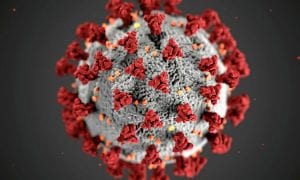SOUTHWICK — The Southwick-Tolland-Granville Regional School Committee will vote on a new masking policy Thursday, Aug. 19, as the school year approaches and COVID-19 cases rise locally.
A location for the meeting was not immediately determined, as School Committee members expected a high level of attendance.
The School Committee met Aug. 16 to discuss its options for mask mandates and to see the preliminary results of a survey sent to parents about potential masking policies. Committee members will essentially decide between two options: follow the July 30 guidance from the state Department of Elementary and Secondary Education, or impose a universal mask mandate for everyone in the schools, regardless of vaccination status.
DESE “strongly recommends” that all unvaccinated persons and students from kindergarten through sixth grade wear masks indoors. That’s because none of the vaccines have been approved for children under the age of 12.
Though the crowd at the Aug. 16 meeting was relatively small, an impassioned debate broke out between people who wished for universal masking and people who wanted to let parents make the choice for their children.
Superintendent Jennifer Willard showed the early results of a survey which parents had one more day to complete. As of the Aug. 16 meeting, 826 people had responded, and 43 percent of respondents said they wanted a universal mask mandate, 41 percent wanted to follow the DESE guidance, and 16 percent wanted a policy in which those who are unvaccinated would be asked to wear a mask.
Some committee members, like Jonathan Schantz, Patrick Jubb, and Robert Stevenson, said that they were inclined to follow the DESE guidance and give parents the choice to put a mask on their children.
Committee member Pamela Petschke gave an impassioned defense of a universal masking policy. She cited Hampden County’s and Southwick’s low vaccination rates compared to the rest of the state, and said that she does not think kids will wear masks if they are given the option not to. She made a comparison to the 1975 film “Jaws,” in which the mayor of an island town kept the beach open, leading to more people being killed by the shark.
“If we don’t do what we know is right, we run the risk of being the mayor of ‘Jaws,’” said Petschke.
She said she most of all feared that children will get sick and have to miss significant school time.
Shortly after the School Committee’s discussion, people from the audience were given the chance to have public participation. One person who supported the universal masking policy said that there have been examples of students in the district being sent to school by parents when the parents knew the child was positive for COVID-19.
Multiple people who opposed the universal mask mandate argued that masks can cause harm to the wearer by trapping bacteria already in their lungs. Other opponents said masks don’t work unless they are N95 masks, a claim that is directly disputed in the Centers for Disease Control’s mask recommendations. The CDC says that N95 masks should be reserved only for healthcare workers, and that cloth and typically paper masks will work for everyday use, if fitted correctly.
Though many disagreed about how the school district should handle the masking policy, many were in agreement that the decision should have been made by the state, rather than being passed to local school committees.






